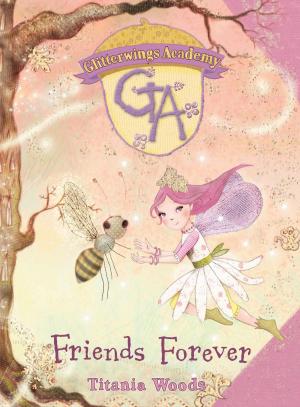The Dissident Mullah
Ayatollah Montazeri and the Struggle for Reform in Revolutionary Iran
Nonfiction, Social & Cultural Studies, Political Science, Social Science, History| Author: | Ulrich von Schwerin | ISBN: | 9780857737748 |
| Publisher: | Bloomsbury Publishing | Publication: | May 30, 2015 |
| Imprint: | I.B. Tauris | Language: | English |
| Author: | Ulrich von Schwerin |
| ISBN: | 9780857737748 |
| Publisher: | Bloomsbury Publishing |
| Publication: | May 30, 2015 |
| Imprint: | I.B. Tauris |
| Language: | English |
The Iranian cleric Ayatollah Montazeri (1922-2009) played an integral role in the founding of the Islamic Republic in the wake of the Iranian Revolution of 1978/9. Yet at the time of his death, Montazeri was considered one of the Islamic Republic's fiercest critics. What made this man, who was once considered the leading advocate of the state doctrine of the 'Guardianship of the Jurist' (velayat-e faqih) and the designated successor to the supreme leader Ayatollah Khomeini, change his views? How did his political theory incorporate issues such as civil rights, pluralism and popular participation? And what influence did his ideas have on others? Ulrich von Schwerin's book answers these questions by examining the evolution of Montazeri's political thought over the course of five decades, and studies his role in the discourse on religion and politics in Iran.
Starting with his entry into politics during the protests against the reforms in 1963, The Dissident Mullah follows Montazeri's political and social activism against the Shah which led to his arrest, exile and imprisonment. Only released on the eve of the revolution, he was elected as the chairman of the assembly to draft the new constitution. While Khomeini remained silent on the future form of the system, Montazeri pressed for the key institutions to be placed under the control of the revolutionary leader. Yet, during the following years he was forced to recognise that this concentration of power in the hands of the leader led to a situation far removed from the Islamic utopia he had initially imagined.
Chosen as the designated successor to Khomeini in 1985, Montazeri set out to develop an alternative reading of velayat-e faqih, limiting the powers of the leader. As his relation to his long-time friend and mentor Khomeini became increasingly strained by conflicts over foreign policy, political reforms and the treatment of political prisoners, he was finally deposed in 1989. Banned from politics under the new leader Ayatollah Khamenei, Montazeri nevertheless continued to intervene in the debate on reform and to refine his ideas. By offering a comprehensive examination of this dissident ayatollah's political and social thought, von Schwerin sheds a new light on some of the most crucial events and vital protagonists of recent Iranian history.
The Iranian cleric Ayatollah Montazeri (1922-2009) played an integral role in the founding of the Islamic Republic in the wake of the Iranian Revolution of 1978/9. Yet at the time of his death, Montazeri was considered one of the Islamic Republic's fiercest critics. What made this man, who was once considered the leading advocate of the state doctrine of the 'Guardianship of the Jurist' (velayat-e faqih) and the designated successor to the supreme leader Ayatollah Khomeini, change his views? How did his political theory incorporate issues such as civil rights, pluralism and popular participation? And what influence did his ideas have on others? Ulrich von Schwerin's book answers these questions by examining the evolution of Montazeri's political thought over the course of five decades, and studies his role in the discourse on religion and politics in Iran.
Starting with his entry into politics during the protests against the reforms in 1963, The Dissident Mullah follows Montazeri's political and social activism against the Shah which led to his arrest, exile and imprisonment. Only released on the eve of the revolution, he was elected as the chairman of the assembly to draft the new constitution. While Khomeini remained silent on the future form of the system, Montazeri pressed for the key institutions to be placed under the control of the revolutionary leader. Yet, during the following years he was forced to recognise that this concentration of power in the hands of the leader led to a situation far removed from the Islamic utopia he had initially imagined.
Chosen as the designated successor to Khomeini in 1985, Montazeri set out to develop an alternative reading of velayat-e faqih, limiting the powers of the leader. As his relation to his long-time friend and mentor Khomeini became increasingly strained by conflicts over foreign policy, political reforms and the treatment of political prisoners, he was finally deposed in 1989. Banned from politics under the new leader Ayatollah Khamenei, Montazeri nevertheless continued to intervene in the debate on reform and to refine his ideas. By offering a comprehensive examination of this dissident ayatollah's political and social thought, von Schwerin sheds a new light on some of the most crucial events and vital protagonists of recent Iranian history.















